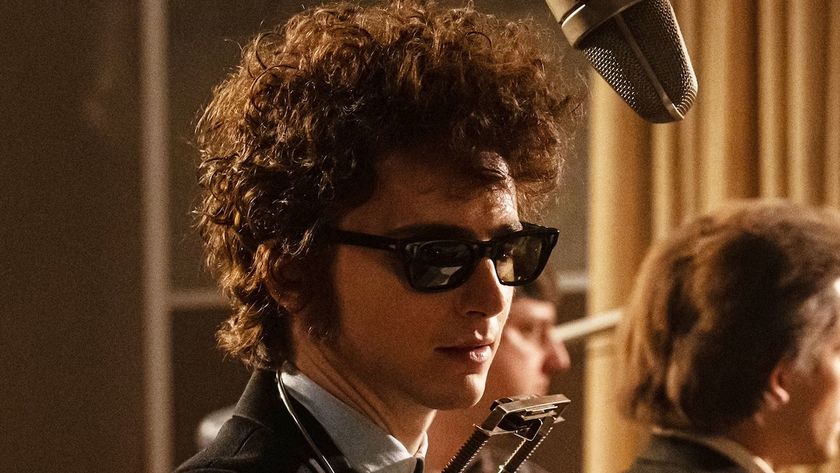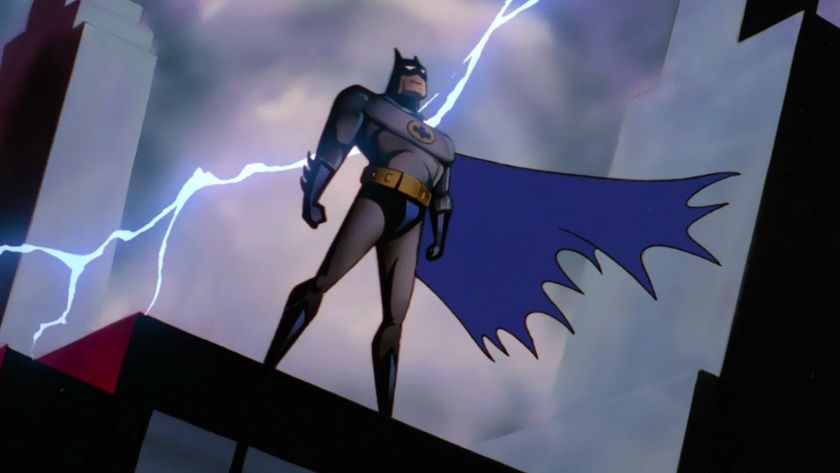If done properly, animated films actually have a distinct advantage when it comes to storytelling. Not only is there typically a lot more development time that allows for opportunity to ensure narrative strength, but there is also greater flexibility when it comes to making changes when necessary. As such, while many may just dismiss them as "kids movies," there is an argument to be made that animated films actually deserve a higher level of scrutiny to match the presumed attention to detail that went into making them.
Despicable Me 3, however, is an affront to that standard.
In my review of Despicable Me 2 four years ago, I labeled the film as being "more like a first draft than a final product," but it's clear that this issue wasn't seen by Illumination Entertainment as a necessary thing to fix in light of the near-billion dollar box office earnings. Despicable Me 3 doesn't feel like it ever even had a script, but instead a white board with each character's name written down, and individual plots assigned with zero synchronicity. You could easily re-edit the film with any of the four subplots completely removed and find no effect on the narrative flow of the movie -- which also very much says something about their dramatic and entertainment value.
The main thrust of the film finds Gru (voiced by Steve Carell) committing himself to life as an agent of the Anti-Villain League along with his wife, Lucy (Kristen Wiig) -- but finds himself failing to foil the plans of Balthazar Bratt (Trey Parker), a former child star turned supervillain whose entire presence is dedicated to beating the audience over the head with tired '80s jokes (which I guess is better than its predecessors' assortment of Mexican stereotypes). Failing to apprehend him, Gru and Lucy are both fired, which just so happens to coincide timing-wise with Gru's long-lost twin reaching out to him (I'm not trying to be coy; there is no artfulness to be found here). Liberally ripping off The Simpsons, Dru (also Steve Carell) is the rich, follically-superior sibling, and it's his greatest dream to join with Gru as a villainous duo -- but really Gru just wants to use him and his resources to find Balthazar Bratt and get his job back.
This plot ultimately demands the bulk of Despicable Me 3's runtime, but it's broken up by the series of aforementioned subplots that really add nothing and go nowhere. This random assortment of half-baked ideas includes the Minions going to both Hollywood and prison; Lucy trying to mother Margo (Miranda Cosgrove) and accidentally getting her engaged to a stranger; and the young Edith (Dana Gaier) and Agnes (Nev Scharrel) looking in the deep forest alone for a unicorn after following the advice of a potentially-crazy bartender. None of them have anything special or significant to say, or add to larger themes -- and it's easy to imagine each of them being pitched as jokes that got taken seriously by the wrong people.
When Despicable Me 3 isn't being insipid and/or shoddy, it also has the wonderful uptick of also feeling weirdly mean-spirited and unpleasant. A base example of this is the presence of the cartoonishly-ugly new head of the Anti-Villain league (voiced by Jenny Slate), whose presence is limited to just one scene where she berates and fires Gru and Lucy, but even its idea of an Easter egg just reads as nasty (in the opening scene, Gru callously and clearly kills a Finding Nemo-esque clown fish with his submarine). There's nothing wrong with dark humor, but it's usually more effective when it doesn't leave a bad taste in your mouth.
I will admit to not being a fan of the previous Despicable Me movies, but that ultimately has no impact on my feelings about Despicable Me 3 -- which is really just independently awful. It's poorly made, tired, insultingly simplistic, and a real solid waste of the talented people who are involved with it. Naturally, the film ends with a set-up for Despicable Me 4, but hopefully that won't happen before Illumination Entertainment takes a long, hard look at everything that is seriously wrong with this sequel.

Eric Eisenberg is the Assistant Managing Editor at CinemaBlend. After graduating Boston University and earning a bachelor’s degree in journalism, he took a part-time job as a staff writer for CinemaBlend, and after six months was offered the opportunity to move to Los Angeles and take on a newly created West Coast Editor position. Over a decade later, he's continuing to advance his interests and expertise. In addition to conducting filmmaker interviews and contributing to the news and feature content of the site, Eric also oversees the Movie Reviews section, writes the the weekend box office report (published Sundays), and is the site's resident Stephen King expert. He has two King-related columns.
Most Popular






